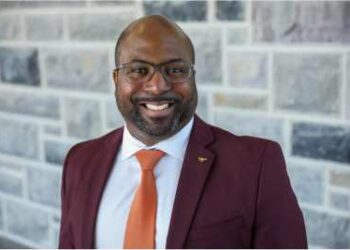By James S. Bridgeforth, Ph.D.
On Jan. 6, 2021, a mob descended upon the Capitol, shaking the foundation of American democracy.
Amid the chaos, Capitol Police officers—men and women who had sworn to protect and serve—stood their ground against an unprecedented onslaught. They were pummeled with fists, flagpoles and steel pipes. They were blinded by chemical sprays. They were outnumbered and outmaneuvered. Yet, despite the danger, they held the line.
Five officers ultimately lost their lives due to that day’s events. Hundreds more carry invisible scars—both physical and emotional—that may never heal. In the face of such sacrifice, Americans were left to ask: Who will honor these officers?
The answer arrived in the form of a shocking betrayal. In a move that reeked of political vengeance, former President Donald Trump—newly inaugurated for a second term—pardoned over 1,500 individuals convicted of crimes related to the insurrection. These were not petty offenders. These were domestic terrorists. These were men and women who weaponized violence in the name of overturning a free and fair election.
And while the nation reeled from this act of gross injustice, two of the nation’s most prominent law enforcement organizations—the Fraternal Order of Police (FOP) and the International Association of Chiefs of Police—stood silent.
Silent after having endorsed the very leader who, with the stroke of a pen, pardoned the people who battered their own members. Silent after betraying the men and women they claim to represent.
This is not leadership. This is failure.
A Stain on the Badge
Trump’s mass pardons serve as more than a political maneuver—they are a stain on our democracy and an insult to the rule of law.
Among those pardoned are individuals who brutalized officers, wielded Confederate flags and desecrated the halls of Congress. These acts of violence weren’t just crimes; they were attacks on the very fabric of our nation.
The pardon does not absolve these criminals; it emboldens them.
It signals to future would-be insurrectionists that accountability is negotiable and that loyalty to a political figure outweighs justice. For the officers who defended democracy with their blood, sweat and tears, this is nothing short of a slap in the face.
But what makes this betrayal even more egregious is the complicity of the FOP and other police unions. Their endorsements of Trump, even after his rhetoric signaled intent to exonerate the Jan. 6 attackers, speak volumes about where their priorities lie. It wasn’t with the officers who suffered. It wasn’t with the families who mourned. It was with political expediency—a cheap trade of values for influence.
Hypocrisy Runs Deep

Photo Credit: David Geitgey Sierralupe/Wikimedia Commons
These unions love to chant, “Back the Blue,” but their actions tell a different story.
How can an organization claim to support law enforcement while endorsing a leader who pardons their attackers? How can they expect the public to trust them when they prioritize partisanship over principle?
Polling shows that trust in police unions is eroding, particularly among moderates and Democrats. And rightly so. The American people are watching, and they are asking hard questions.
When officers are left to fend for themselves, not just against violent mobs but against political leaders and the very organizations meant to support them, where does accountability begin?
A Call for Redemption
To those in leadership within law enforcement, the time for self-reflection is now.
It is not too late to course-correct.
Honor the officers who stood their ground on Jan. 6—not with hollow words but with actions that uphold the principles of justice, accountability and integrity.
For the rest of us, let this moment serve as a clarion call.
Democracy is fragile. It depends on leaders with courage, not cowardice—with vision, not vanity.
We must demand more from those who wield influence, especially when the stakes are as high as they were that day.
History will not forget Jan. 6 or the choices made in its aftermath. Let the bravery of those officers stand as a symbol of hope and resilience. Let the betrayal of their sacrifice serve as a stark reminder of what happens when we fail to hold leaders accountable.
This is not the end of the story, but it’s a turning point.
The question is: What will we do with it? Will we continue down a path of political cowardice and hypocrisy, or will we rise to meet the challenges of our times?
The power to choose lies with us—a power we must wield wisely.

Bridgeforth enjoys writing as a political columnist who is a passionate advocate for justice and equality whose academic journey reflects a profound commitment to these ideals. With a bachelor’s degree in Sociology from Catawba College, Bridgeforth began his quest to understand and address systemic inequalities. He furthered his expertise with a master’s degree in Higher Education Administration from The University of Massachusetts-Amherst, followed by a Ph.D. in Higher Education Administration and Institutional Research from The University of Southern Mississippi.
Beyond his impressive academic credentials, Bridgeforth is deeply involved in organizations dedicated to empowerment and community service, including Alpha Phi Alpha Fraternity, Inc. and 100 Black Men of America. His columns provide insightful commentary on equal opportunity, social justice, economic equity, and higher education, driven by a sincere desire to amplify voices and champion the causes of those often marginalized.
Through his writing, Bridgeforth brings a blend of scholarly rigor and heartfelt advocacy, aiming to inspire change and foster a more just society for all.



